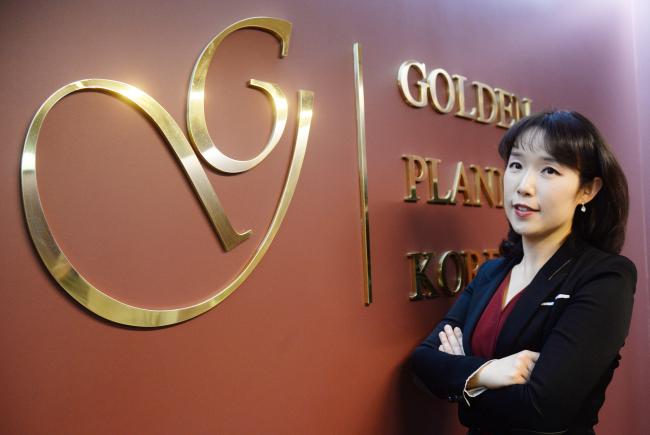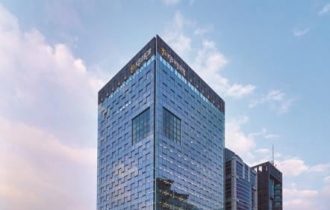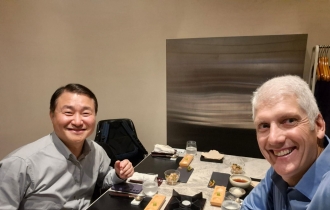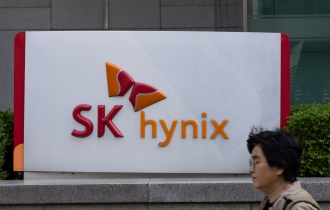[INTERVIEW] Golden Planners, a hidden champion of real-estate consulting in Korea
[THE INVESTOR] Golden Planners is a well-known name in the nation’s real estate market, as it has offered diverse consulting services, including investment advisory, tenant hunting and office relocation, to a slew of conglomerates, such as SK, LG and Kolon and their subsidiaries, and multinational firms like Google.
“We may be a small player in the market but that allows us to move faster and dig deeper,” CEO Kim Ji-ae, an industry veteran with 18 years of experience, told The Investor in a recent interview at her Seoul office. “That’s how we can offer more customized services more promptly than our bigger rivals.”
Kim started her career at a local marketing firm for Gangnam Finance Center in southern Seoul, a 45-story landmark building that was being developed as the head office of Hyundai Group in the late 1990s. But hit hard by the Asian financial crisis, the group had to sell the building to Lone Star Fund for 630 billion won (US$580 million) in 2001. The US private equity firm later sold the building to Singapore’s sovereign wealth fund GIC for 900 billion won in 2004, with a profit of more than 300 billion won in just three years.

Golden Planners CEO Kim Ji-ae. Park Hyun-koo/The Investor
“The whole deal process impressed me a lot. Even though there were some controversies about Lone Star’s huge earnings in the short term, it is true that the deal attracted more global investors into the market,” she said.
GIC purchased the building for 4.3 million won per square meter at the time. Now the building’s value has almost doubled to a whopping 2 trillion won, about 10 million won per square meter.
After witnessing the market potential and the beauty of deal making, Kim, then in her 20s, started her own business Golden Planners in 2002. A young female CEO was rare but she thought it was special, not a handicap. She never hesitated to visit construction sites to mingle with field workers and built up networks with employees at large companies, the nation’s key real-estate investors.
“In the early 2000s, the vacancy rate was extremely low especially for prime-grade buildings. But after years of a construction boom, the vacancy rate started to grow and landlords poured more resources into marketing,” she said. “With the soaring market, competition among real-estate firms also became fiercer.”
Korean conglomerates are increasingly relocating subsidies of their sprawling businesses. They are also buying and selling their own buildings for liquidity purposes. During the whole process, Golden Planners searches for an office building for their relocation or attracts new tenants to elevate the building’s value.
In 2014, Google was seeking to open the first Asian office of its startup accelerating program Google Campus in Seoul in 2016. Golden Planners that was searching for a tenant for Autoway Tower in Daechi-dong, a new office building owned by SK Group, happened to introduce the exclusive 2,000-square-meter basement space to a Google executive.
“I knew Google preferred an office with a rooftop. All I could do was ask them to see the Autoway Tower first among another 20 candidates,” she said.
The Google executive liked the office with a garden and a sunken entrance from the road but didn’t want to share the building entrance with other tenants, especially Hyundai Motors on the upper floors, showing concerns Google Campus residents, mostly young startup CEOs, could feel intimidated by Hyundai workers wearing suits.
“I checked the building plan again and came up with an idea -- an exterior elevator only for Google. It took an additional 200 million won for the landlord but it was a win-win deal for both Google and SK,” she said. Google signed a lease for 10 years.
Another specialty of Golden Planners is trading buildings before their completion. Last year, the firm managed a deal for ICON Yeoksam Tower in southern Seoul, a 15-story building that was still under construction. As it took place before completion, the developer could offer more favorable conditions for the buyer, Singapore’s Ascendas Funds Management, which purchased the building through full-equity funding.
“Anyone can trade completed buildings but you should have information to trade them before completion. For that, we have maintained close ties with developers as well as investors,” Kim said. “We aim to become a leading player on smaller deals worth less than 300 billion won. Rather than seeking an excessive expansion, we will focus on offering customized services to meet different demands from different clients.”
The CEO predicted Korea’s real estate market would see a surge for some time despite economic uncertainties, as Korean investors are increasingly betting big and raising prices overall. Last year, Korean investors made up almost 85 percent of the market.
According to global real-estate consulting firm Savills, Seoul offices saw a record 8.8 trillion won of transactions last year, with 200 billion won-plus deals accounting for 56 percent of the total. The firm predicted the binge buying and selling are expected to continue this year.
By Lee Ji-yoon (jylee@heraldcorp.com)
EDITOR'S PICKS
- Korea’s top finance firms put aside W1.7tr for Hong Kong-tied ELS compensation
- Samsung mobile chief, Google device head meet in Seoul
- Posco Future M, Honda to launch battery materials venture in Canada
- Hybe-Ador feud should have limited effect on Hybe's overall performance: analysts
- Experts raise concerns about Japan putting pressure on Naver over Line
- SK hynix profits soar on AI chip boom
- Korea enters clear growth path as Q1 growth hits 2-year high
- Hyundai, Kia seek to boost presence in China market















